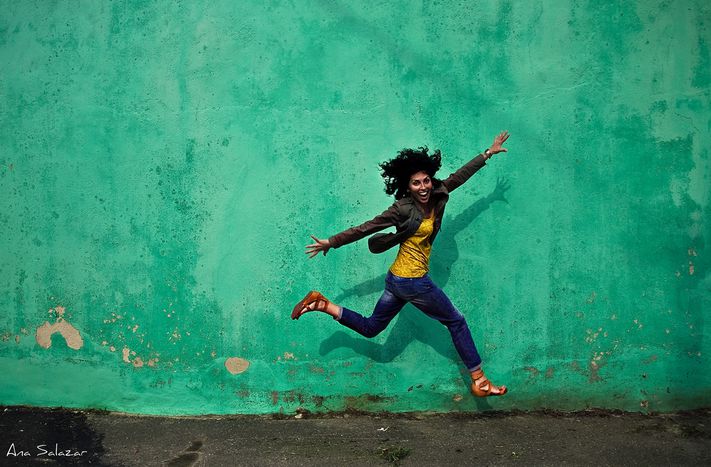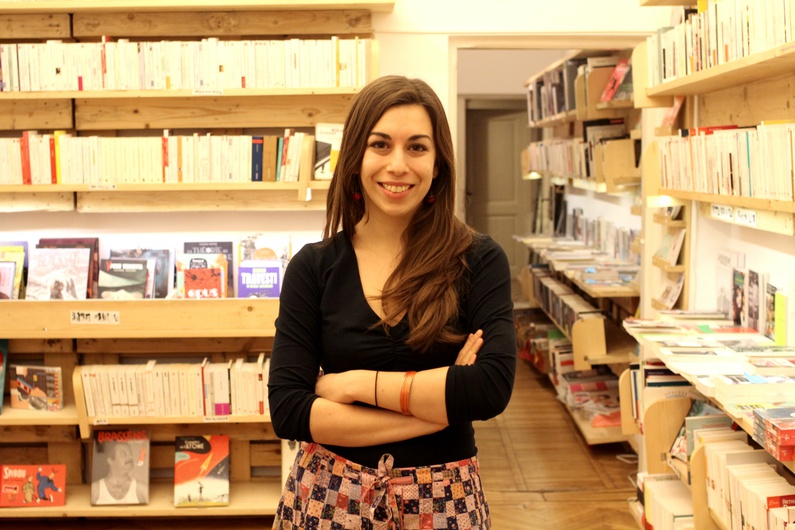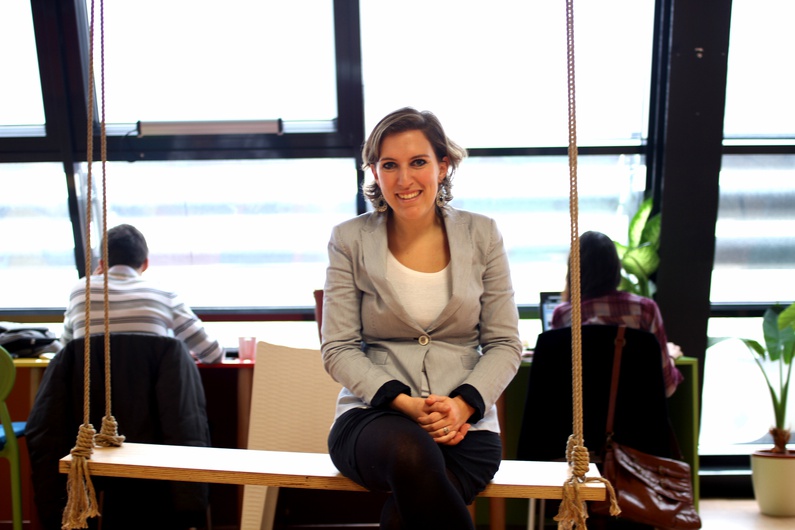
Young Europeans: living the good life in Romania
Published on
Translation by:
Garen Gent-RandallApart from the expat bubble and from the big companies seeking for low-cost labour, young Europeans settle in Romania because of their love for the country and the offered opportunities. Sidonie, Anna and David have chosen to live in Bucarest, a city « full of resources ».
Outside of the bubble of expats and entrepreneurs who want to take advantage of low-cost labour, young Europeans are moving to Romania - out of love for the country and the opportunities it provides. Sidonie, Anna and David have chosen to live in Bucharest, a city "full of resources"
Behind the communist-style blocks and wide, busy streets, the Romanian capital is a real treasure trove. Foreigners living in the city like to wander the streets, discover the diverse architecture of houses which survived the Ceaușescu era, and see if someone hasn't set up a café in one of them. In the Piata Amzei quarter, there is a French bookshop which used to be a house. Standing in front of the green door, you'd think that people still lived there, if it weren't for the ‘Kyralina - French bookshop’ sign which proves otherwise. Inside, a black-and-white cat strolls between the children's books, the winner of the last Goncourt award, and a Tintin comic in Romanian. Sidonie, behind her computer, is talking in French with a client from the city.
'An open playing field'
In 2009, after studying literature at the Sorbonne and working in publishing, Sidonie headed off to Bucharest to take up an international volunteering position with the Institut Français. At the time, the Institut had a rather unsuccessful bookshop. For Sidonie, a wonderful opportunity was going to waste: ‘I realised that Romanians, even the youngest of them, were still very much Francophiles. My partner had found work here, and we decided to set up a French bookshop, independent of the Institut". It has been a success: just over a year after opening, they have exceeded their expectations and almost 70% of their clients are Romanian. ‘We're delighted that we can meet the needs of the Romanian people and not just be an expats' bookshop.’
A few streets away, in the old centre, the ‘Hub’ brings together self-employed young businesspeople to offer them somewhere to work from. Anna is one of them. Originally from the Netherlands, she arrived in October 2012 as part of the European Voluntary Service (EVS) programme. But the project wasn't what she expected it to be, so she started her own project and realised that she had an entrepreneurial spirit. At the end of her EVS, she took part in the Erasmus programme for Young Entrepreneurs and put together her communication consultancy business: ‘I train clients, showing them how to pitch and I help my clients to create a strong message for their business. Most of them are Romanian. It's going well, probably because I'm the only person doing it here.’
The lack of competition is also an advantage for Sidonie. She describes the city as something of a blank page for experimentation and creativity. ‘It's a city of possibilities. Paris is full to bursting with amazing projects. I came to Bucharest because the playing field is so open.’
Beyond the clichés
The Romanians' warm welcome, the language, the culture and the beautiful countryside are other reasons why people stay in Romania. David arrived in 2005 as an Erasmus student. Originally from Catalonia, he fell in love with the city and the whole country straight away. ‘What I like here are the contrasts. Each day is a surprise. I'm never bored.’ He has now mastered Romanian and works part-time for a French business and two days a week for Radio Romania International.
But a lot of foreign visitors who spend a few days in Romania have the image of the grumpy shop assistant or the impatient waiter. According to David, ‘it happens a lot and it hasn't changed in eight years.’ He enthusiastically does an impression of a woman selling bus passes with hardly a glance in his direction. ‘After having lived here, I find Romanian people welcoming, resourceful, creative, even if they themselves don't always see it. Only once in eight years has anyone said I shouldn't be here.’
The Romanian dream. Not without difficulties
The idea that ‘anything is possible’ is not without its flaws. Those who move abroad are often faced with administration that can go over their head. In Romania, it doesn't take long before you find yourself in a mad Ionesco-style hullabaloo. Exorbitant fines spring out of nowhere for trivial things, and even France's infamous bureaucracy has nothing on the Romanian system. ‘Romanian administration is pretty absurd. The opening of my bookshop was delayed because of a pile of useless forms’, remembers Sidonie. The worst surprise is still the cost of the rent: ‘the property market isn't regulated. You can rent a flat for almost nothing, but shop space is more expensive than in Paris!’
David also had some financial troubles. ‘Finding a job is fairly easy, but finding one that allows you a decent quality of life is more difficult. My first job paid 500 lei per month (around €100) and my electricity bill was 300 lei. Wages haven't changed since I've arrived.’ Although prices have gone up, a new teacher is still paid 200 euros a month, and a doctor 500 euros. ‘That's why there's corruption in health and education,’ David adds.
But there's no question of leaving Romania: ‘some of my Spanish friends have had to leave because they couldn't find a decent job. But I really wanted to stay here. I made concessions, I had three jobs at the same time and I succeeded.’ As for Sidonie and Anna, Romania has brought them more than they were looking for: an unexpected turn in their lives.
Interviews by Marine Leduc, in Bucharest.
_
This article is part of Cafebabel's Dossier about immigration in Europe.
Translated from Jeunes européens : la belle vie, en Roumanie



